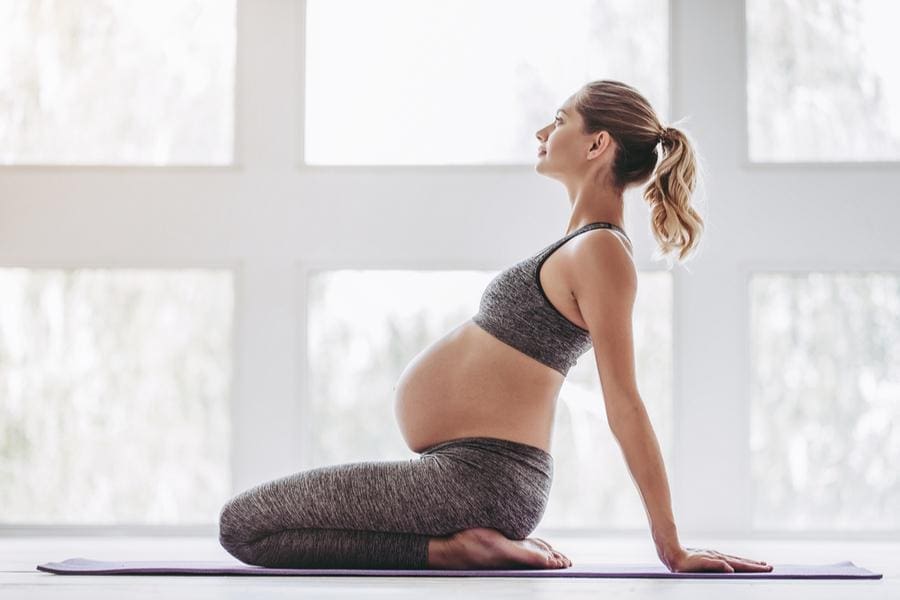While staying active while pregnant gives you significant health benefits, you must be aware of which kinds of exercises are recommended and which are not. There isn’t an identical workout plan for every pregnant woman, but you can generally continue doing the type of exercises you did before your pregnancy. Don’t plan on doing strenuous new exercises like taking up mountain climbing if you’ve never scaled a peak. As you get further along in your pregnancy, there are other less ambitious exercises you should avoid as well.
Working out can energize you if you are feeling under the weather, and it can help ease the aches and pains that come along with pregnancy. Losing weight shouldn’t be a concern while pregnant, so proper exercise is now meant to keep your strength and endurance during and after your pregnancy. Working out for 30 minutes a day, or 20 minutes 3-4 days a week is recommended by the American Pregnancy Organization.
One benefit of exercise is that the likelihood of complications such as gestational diabetes is reduced. You are less likely to develop preeclampsia (a sudden increase in blood pressure) in the second half of your pregnancy. Staying active also reduces the chance that you will need a C-section.
Keep walking and add kegels
Moves that strengthen your arms, back and glutes are advised. You’re going to be doing a lot of lifting when the little one arrives. Glutes help support and stabilize the pelvis, which undergoes a lot of changes during pregnancy. Add kegels to your routine; they’re excellent training to deliver your baby.
Suitable exercises include walking, swimming, and indoor cycling, as well as yoga and Pilates with modifications.
Among the prenatal exercises that you can do at home are biceps curls, lunges, squats, side-lying leg extensions, clamshells, and triceps dips.
Forget about boxing and hot yoga
Steer clear of impact sports that could deliver a blow to your baby. The American College of Obstetricians and Gynecologists (ACOG) recommends against sports like volleyball, downhill skiing or boxing.
Rule out hot yoga. You want to take care that your body temperature does not get too high and you don’t want to get dehydrated. Both of these conditions could cause problems such as compromising your circulatory system, and that could put your baby’s safety at risk.
Exercises that cause you to hold your breath are not recommended, and exercises like heavy lifting may deprive your baby of needed blood because heaving lifting diverts blood to your muscles. Doctors recommend substituting lighter weights (under 10 pounds) and adding more repetitions. Mothers often wonder if they should stop picking up small children for this reason, however doctors say lifting toddlers who are too young to walk will do no harm.
Limit your ab work. Planks, crunches and pushups can put you at risk of diastasis recti, or separation of your abdominal muscles. This condition is common for all women by the third trimester. Abandon sit-ups starting in the second trimester.






